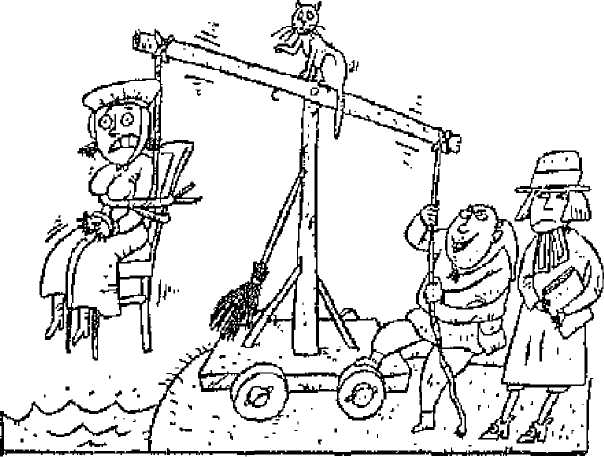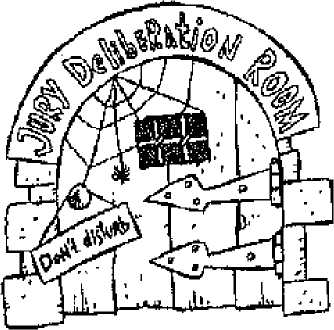
- •Английский
- •Москва зерцало м
- •Об авторах
- •Отзывы о серии just english
- •Contents
- •Предисловие
- •The Birth of Law
- •1) Юридический
- •2) Правовой
- •B eainstorm
- •Laws of Babylon
- •Unit 3. The first laws: ancient greece and rome
- •Драконт
- •С нелт1уе whiting
- •The magna cabta b rainstorm
- •1) Государственная власть
- •3) Форма правления, государственное устройство, поли тический строй
- •4) Правительство, правительственный аппарат
- •"Let the Body Be Brought..."
- •Of rights
- •The Petition of Right
- •Napoleon's Law
- •I t's Interesting to Know Napoleon's Words of Wisdom
- •U nit l the study of crime b uainstorm
- •Criminology
- •B rainstobm
- •Just for Fun
- •D ebate
- •U nit 4. Punishment b hainstokm
- •From the History of Punishment
- •I t's Interesting to Know Joseph Ignace Guillotin
- •M anslaughter
- •Assault
- •Shop-lifting
- •D iscussion
- •U nit 8. Capital punishment: for and against
- •B rainstorm
- •From the History of Police Forces
- •The British Police
- •Пх разыскивает мплгшпя
- •Identify the Suspect!
- •The Miranda Warning
- •Let Off with a Caution
- •I t's Interesting to Know!
- •C reative writing
- •Good or Evil?
- •U nit 5, scotland yard The History o£ Scotland Yard
- •U nit 6. Police techniques The uk Forensic Science Service
- •I t's Interesting to Know Alphonse Bertillion
- •D ebate
- •B rainstorm
- •Jury Service — an Important Job and a Rewarding Experience
- •How You Were Chosen
- •A View From Behind Bars
- •U nit 5. Kinds of cases
- •1) Ответчик
- •2) Обвиняемый
- •3) Подсудимый
- •It's Interesting to Know
- •Verdict
- •Unit 7. The value of juries Falling Bastion?
- •Words of Wisdom About Jury Service
- •I t's Interesting to Know Cyber Justice
- •Chapter V
- •Imprisonment: retribution or rehabilitation?
- •It's Interesting to Know
- •E lizabeth Fry, 1780—1845
- •U nit 2. Prison population
- •Prison Inmates
- •U nit 3. Prison life
- •Creative writing
- •U nit 4, alternatives to prison
- •Unit 5. Rehabilitation
- •European Prison Rules (1990s)
- •John Locke, 1632—1704
- •Voltaire, 1694—1778
- •Captain William Kidd, 1645—1701
- •Lizzie Borden, 1860—1927
- •Hans Van Meegeren, 1889—1947
- •Alphonse Capone, 1899—1947
- •'Lucky Luciano*, 1897—1962
- •Lee Harvey Oswald, 1940—1963
- •Inspector Jules Maigret
- •Р аит V, the stupidest criminals
- •1. Bank Robbers
- •2. Muggers
- •3. Thieves
- •4. Escape Artists
- •5. Shop-Lifters
- •6. Robbers
- •7, Burglars
- •8. 'Miscellaneous* Crooks
- •9 , Outrageous Lawsuits
- •List of reference books
- •Isbn 5-94373-029-х
I t's Interesting to Know Alphonse Bertillion
The problem of identifymg criminals was made much easier by Bertillion, who, in 1882, invented a system called anthropometry. As head of the identification department of the Paris police he had careful measurements made of the head, limbs and body of every criminal he could lay his hands on, who could then not get away in the future by giving a false name. Photography was also used for the first time, Many hundreds of criminals were caught in the first years of the system's operation, but it was soon replaced by fingerprinting. To Bertillion, though, must go the credit for creating the science of human identification.
D ebate
Cybercop: An Alternative to Policeman?
Divide into groups — pro and con, and conduct a debate on the necessity of new technologies m police work.
Appoint the 'Chair* of the debate who will give the floor to the speakers of both teams.
Use the active vocabulary from the Unit,
Chapter IV FAIR TRIAL: THE JURY
108
Just English. Английский для юристов
U NIT
1. ORIGINS
OF THE JURY
NIT
1. ORIGINS
OF THE JURY
B rainstorm
Acquittal / Sentencing Apprehension Bringing charges Bringing in a verdict Imprisonment Jury trial Police custody Questioning
Arrange the legal actions listed above into a logical chain. What is the place of jury trial in this sequence?
J
E arly
Juries
arly
Juries

A jury is a body of lay men and women randomly selected to determine facts and to provide a decision in a legal proceeding. Such a body traditionally consists of 12 people and is called a petit jury or trial jury.
The exact origin of the jury system is not known; various sources have attributed it to different European peoples who at an early period developed similar methods of trial The jury is probably of Prankish origin, beginning with inquisition, which had an accusatory and interrogatory function. Trial by jury was brought to England by the Normans in 1066.
In medieval Europe, trials were usually decided by ordeals, in which it was believed God intervened, revealing the wrongdoer and upholding the righteous. In the ordeal by water, for instance, a priest admonished the water not to accept a liar The person whose oath was being tested was then thrown in. If he floated, his oath was deemed to have been perjured. If he was telling the truth, he might drown but his innocence was clear.
Chapter IV. Fair Trial: the Jury 109
I n 1215, however, the Catholic Church decided that trial by ordeal was superstition, and priests were forbidden to take part. As a result, a new method of trial was needed^ and the jury system emerged
At first the jury was made up of local people who could be expected to know the defendant. A jury was convened only to "say the truth" on the basis of its knowledge of local affairs. The word verdict reflects this early function; the Latin word from which it is derived, veredictum, means "truly said".
In the 14th century the role of the jury finally became that of judgment of evidence. By the 15th century trial by jury became the dominant mode of resolving a legal issue. It was not until centuries later that the jury assumed its modern role of deciding facts on the sole basis of what is heard in court.
TASK 1. Find in the text the words that mean the following:
ш examination of a case before a court of law;
• a former method of trial used to determine guilt or innocence by subjecting the accused person to serious physical danger, the result being regarded as a divine judgment;
« a solemn appeal to a court to witness one's determination to
speak the truth; « freedom from sin or moral wrong;
* a belief or practice resulting from ignorance, fear of the unknownt trust in magic or chance.
TASK 2. Answer the following questions:
What is a jury? ■ =
How were cases resolved before jury system emerged?
Why was there a need for jury system? 4; What was the function of the first juries?
5. How did the function of the jury change through the centuries?
TASK 3, Read the following text and write dawn the Russian equivalents for the words and expressions given in bold type:
Ordeal
Ordeal is a judgement of the truth of some claim or accusation
by various means based on the belief that the outcome will reflect the judgement of supernatural powers and that these powers will
па
Just English. Англ и tic геи й для юристов
ensure tSie triumph of right. Although fatal consequences often attend an ordt-al, its purpose is not punitive.
The main types of ordeal are ordeals by divination, physical test, and battle, A Burmese ordeal by divination involves two parties being furnished with candies of equal size and lit simultaneously; the owner of the candle that outlasts the other is adjudged to have won his cause, Another form of ordeal by divination is the appeal to the corpse for the discovery of its murderer.
The ordeal by physical test, particularly by fire or water, is the most common. In Hindu codes a wife may be required to pass through fire to prove her fidelity to a jealous husband; traces of burning would be regarded as proof of guilt. The practice of dunking suspected witches was based on the notion that water, as the medium of baptism, would 'accept', or receive, the innocent and 'reject1 the guilty. Court officials would tie the woman's feet and hands together and then drop her into some deep water. If she went
straight tu the bottom and drowned, it was a sure sign that she wasn't
si witch. On the other hand, if she didn't sink and just bobbed around
for a while, the law said she was to be condemned as a witch. In ordeal by

combat, or ritual
combat, the victor is
said to win not by his
own strength but
because supernatural
powers have intervened
on the side of the right,
as in the duel in the
European Middle Ages
in which the
'judgement of God' was
thought to determine
the winner. If still alive
after the combat, the loser might be hanged or burned for a cnminal
offence or have a hand cut off and property confiscated in civil actions.
TASK 4. Answer the following questions:
X. What was the purpose of ordeal In early ages?
What were the main typos of ordeals?
What did ordeal by divination consist of?
What did ordeal by fire have to prove?
In what way was ordeal by water devised?
What concept was at the basis of ordeal by combat?
C

 hapter
IV. Fair Trial: the Jury
hapter
IV. Fair Trial: the Jury
*
 It's
Interesting to Know
It's
Interesting to Know
Instructions for Justices of the Peace in The 16lhand 17lh Century England Relating to Witches
Conjuration, or Invocation of any evil Spirit, for any intent, or to be counselling, or aiding thereto, is Felony without benefit of Clergy.
To consult, entertain, employ, feed, or reward any evil Spirit, to or for any intent or purpose, is Felony in such offenders, their aiders and counsellors.
To take up any dead body, or any part thereof, to be employed or used in any manner of Witchcraft, is Felony in such offenders, their aiders and counsellors.
Also to use or practice Witchcrafts, Enchantment, Charm, or Sorcery, whereby any person shall be killed, pinned, or lamed in any part of their body, or to be counselling or aiding thereto, is FeJony. By the ancient common law such offenders were to be burned.
Now against these Witches, (being the most cruelt revengeful, and bloody of all the rest) the Justices of Peace may not always expect direct evidence, seeing all their works are the works of darkness, and no witnesses present with them to accuse them.
These are the main points to discover and convict these Witches; for they prove fully that those Witches have made a League with the Devil:
I. These Witches have ordinarily a Spirit, which appeareth to them; sometimes in onz shape, sometimes in another; as in the shape of a Man, Woman, Boy, Dog, Cat, Foal, Fowl, Hare, Rat, Toad, & And to these Spirits they give names, and they meet together to christen them (as they speak),
10. The Testimony of other Witches, confessing their own Witchcrafts, and witnessing against the suspected, that they have Spirits or Marks; that they have been at their meetings; that they have told them what harm they have done,
II. If the dead body bleeds upon the Witches touching it.
The Examination and Confession of the Children (able & fit to answer) or Servants of the Witch. Also whether they have seen her call upon, speak to, or feed any Spirit, or such like, or have heard her foretell of this mishap, or speak of her power to hurt, or of her transportation to this or that place.
Their own voluntary Confession (which exceeds all other evidence), of the hurt they have done, or of the giving of their souls to the Devil, and of the Spirits which they have, how many, how they call them, and how they came by them
112
Just English, Английский для юристов
U NIT 2. JURY DUTY
TASK 1. Read the folloiving text and write down Russian equivalents for the words and expressions in hold type:
The Fear of Jury Duty

For Americans, serving jury duty has always been a dreaded chore. There is plenty of history behind this fear. In colonial days, jurors were locked in a small room with no ventilation and were denied food and water in an attempt to inspire a quick verdict. If the jurors returned with the wrong decisions, they too were charged with a crima As more and more laws were passed, the rules of evidence expanded and trials became longer, which resulted in more technical and increasingly boring hours for jurors. Trial lawyers have tried to change the boredom toy replacing endless hours of testimony with computer animation, video reconstructions, color charts ancl graphics to better explain the evidence.
The judicial system depends on juries. The United States Constitution guarantees its citizens the right to a trial by jury of their peers. When summoned for jury duty, Americans should look upon it as an opportunity to serve their country, their community, and their fellow citizens,
Each year, over 5 million Americans are summoned for jury duty to render verdicts in approximately 120,000 trials.

Prospective jurors are chosen at random from voter registration lists. When people are chosen for jury duty, they are often shown a video tape explaining the jury system or given a HANDBOOK ON JURY SERVICE.'
TASK 2. Answer the following questions:
Why have Americans always feared the jury service?
In what conditions were jurors kept in colonial days? Why?
How has trial procedure changed through the years?
Why is the right to a jury trial considered to be so important for the U.S. citizens?
Chapter IV. Fa ir Trial: the Jury X13
 following
text comes from a handbook on jury service for the IJ.S,
citizens.
following
text comes from a handbook on jury service for the IJ.S,
citizens.
